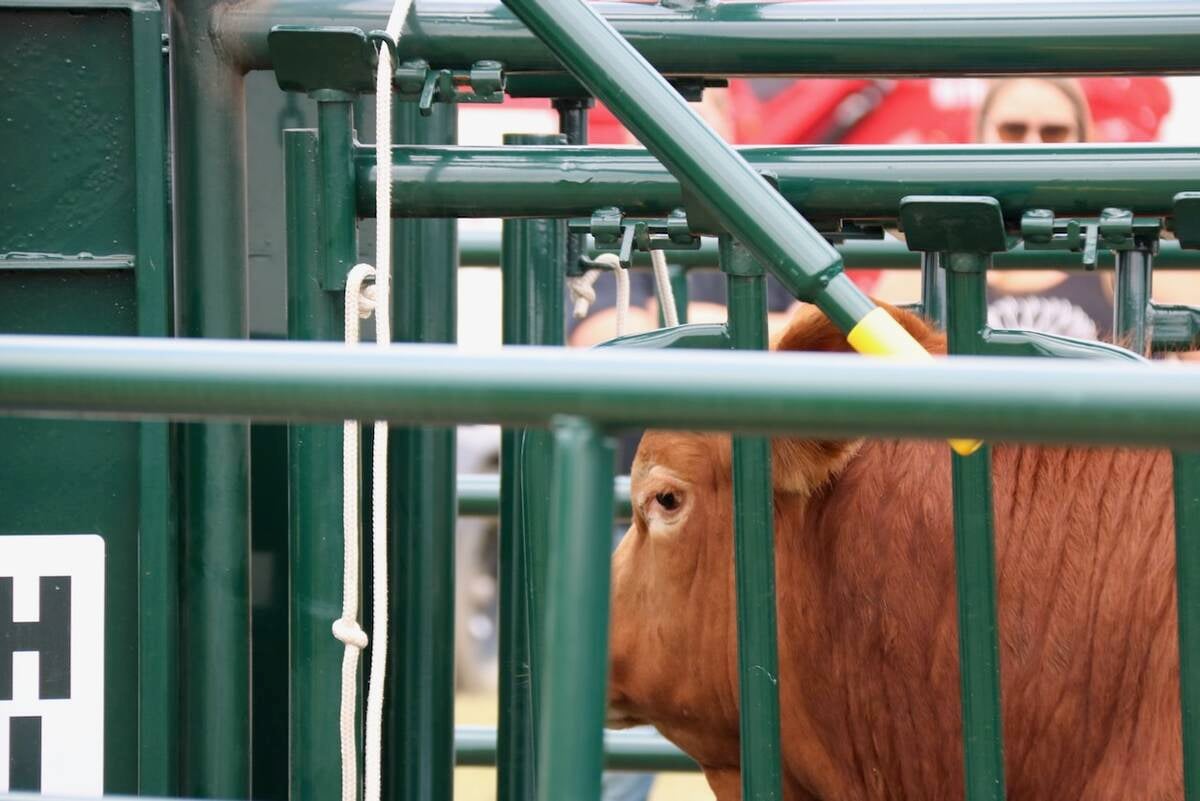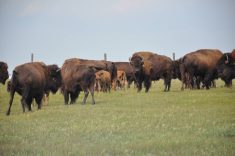A lack of vaccine supply continues to affect production in the swine industry.
There is a treatment for a virus infecting 80 percent of the pig herds in Quebec, most of Ontario’s hog barns and up to 20 percent of western herds. However, the vaccine is not widely available.
“The (Intervet) vaccine is a miracle for most producers. After what they’ve been through with (porcine circovirus type 2) there are many that went from 15 to 18 percent mortality in their finishing barns, down to two or three percent after using the piglet vaccine,” said Laura Batista, a swine specialist at the University of Montreal.
Read Also

Good handling equipment a must on cattle operations
It’s important for the safety of producers and everyone else dealing with their stock that handling equipment is functional and safe.
Frank Marshall is spending a lot of his time helping producers reduce their losses to PCV-2 related diseases in Alberta.
Marshall operates Marshall Swine Health Services in Camrose, Alta.
“I’ve got 14 herds with 15 percent mortality on the finish floor. We’ve got one producer group of farmers that is fighting a 28 percent loss from farrow to finish right now, all related to this virus. We need vaccine options,” he said.
Batista said after two new vaccines became available this year in Quebec, the mortality and morbidity rates began to tumble.
“But now there is no supply of the vaccine. The company says it will have more available in the coming weeks, but producers are worried it will be limited or that only the (largest producers contracted to suppliers) will be able to get the doses that are needed to save many growers’ farms,” she said.
“We had enough of the Intervet product to try out initially for most of our farms,” added Francois Cardinal, with Les Consultants Avi-Porc in Drummondville, Que.
“But now we have to give either one full dose or two half while we wait to get more supply.”
Veterinarians and researchers suspect the declining numbers of PCV2 infections are due to three factors: a pair of new vaccines that target the disease; barn management improvements and the natural cycle of the infection.
“Improved management helps, but when you introduce a vaccine and your losses crash from 18 percent to two or even one, it shows that management only goes so far,” said Batista.
The two new vaccines made available to Canadian producers under a federal emergency release program in the past year were the prefarrowing sow vaccine Circovac from Merial and a yet to be named piglet product from Intervet.
Cardinal said Circovac reduces losses by 50 percent, while the Intervet product leaves the herds with no clinical signs of the disease.
Marshall said his producers missed the small window of opportunity to participate in the emergency release of the piglet product and are relying on the Merial product.
“It works, but we need all the tools we can get in this fight. These are kinds of sustained wrecks that put farmers out of business,” he said.
Marshall said Circovac appears to be “pushing some of those colostral immunities onto the finish floor.”
Two other products, one of which is available in the United States, are awaiting full registration in Canada.
Veterinarians have heard that product approval is being delayed by federal authorities in Canada who may require additional study.
“We understand that these new PCV-2 vaccines are very hard to produce for the drug companies,” he said.
Marshall said his producers need the new products as soon as possible.
“I have a 2,500-sow operation that is losing 5,000 animals a year to this disease. Those producers have taken every other step and they need these vaccines if they are going to get beyond this.”
All three swine specialists say the levels of the disease appear to be falling and that the vaccines are responsible.
PCV-2 is common throughout the North American hog industry. The virus can be cultured from samples in most barns in Canada, but it takes other diseases or stresses in the herd to trigger an outbreak.
Veterinarians say that vaccination against other diseases such as porcine reproductive and respiratory syndrome, porcine parvovirus, swine influenza and mycoplasma hyopneumoniae need to be kept up to help avoid PCV-2 activity.
Marshall said providing adequate access to feed and water, keeping animals away from drafts, reducing stress with proper stocking levels and sorting for sex and extremes of size all play a role, along with strict all-in, all-out barn production.
Cardinal said he and his producers are pinning their hopes on the release of the Wyeth and Boehringer Ingelheim piglet vaccines and an improved supply and full registration of the Intervet and Merial products.














